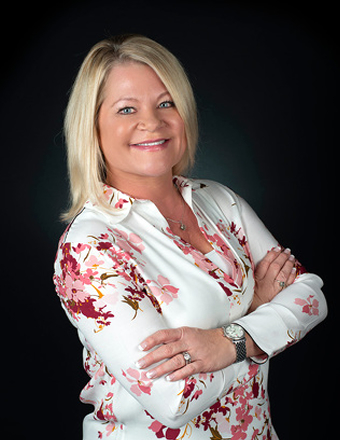It's Not Just a Home: In 2021, Prioritize Lifestyle
I’ve found it interesting that people are staying in their homes longer these days — somewhere in the neighborhood of eight to 13 years! That’s up considerably from the early 2000s, when people moved about every five years.
We know that homeownership tenure is impacted by many things — mortgage rates, the economy, inventory. But what I’ve come to observe is that lifestyle is also playing a role. Not only do I think lifestyle is contributing to people staying in their homes longer, I also believe a focus on lifestyle is changing the home purchase process. Here's why:
We aren’t just selling a product; we’re selling a lifestyle
Most real estate searches use filters that relate to specific characteristics of the house, for instance the number of bedrooms and bathrooms or total square footage. In this instance, the home is a product with certain features. But what more and more consumers are looking for today reflects how they want to live in the home, community and surrounding area — the lifestyle they will lead there.
We first saw this approach in the luxury real estate space during the ’80s and ’90s, with Robin Leach’s iconic television program, Lifestyles of the Rich and Famous. Each week we were transported to new takes on luxury living — an aspirational viewing experience in which we lived vicariously through these wealthy homeowners and dreamed of living like they did.
Today, the idea of aspirational living isn’t limited to the affluent. Homeowners of all incomes have begun to proactively curate their desired lifestyle by the careful selection of their home — a place they intend to stay for a while. Understanding this shift is important for real estate professionals as it requires adapting to the consumer.
Location, location, location, lifestyle
Adapting to the consumer means it’s time to add a fourth “L” to our guiding real estate fundamental to remind us to invoke the lifestyle elements a home possesses. For example: Potential homeowners can imagine themselves exploring European cooking classes in the open kitchen plan, stargazing with their children in the outdoor living room, hitting the bike trails after work or strolling the downtown galleries.
Each description evokes not just a place but also how the homeowner can live in that place. This is the first way to engage with the new lifestyle-driven real estate customer. Once you have enticed them with your words, it’s imperative to demonstrate that lifestyle when touring the home and neighborhood with your client.
Remember that there are many different lifestyles that can be presented to potential buyers from country life to city life, and from outdoor life to family life.
Listen to the consumer
Although some buyers come in knowing exactly what they want, right down to a certain block in a neighborhood, others don’t yet know what they are looking for in the homebuying process.
I always like to start off by asking questions. What are your hobbies? What do your weekends typically look like? How close do you want to be to your place of work? The answers to these questions will help guide you to a place that best complements your client’s life.
Focus on the future
When purchasing a home, buyers are looking to their future — both immediate and long term. They want a property they can see themselves building a life in and around, while feeling that they belong.
When making one of the biggest purchases of their lives, today’s real estate consumers believe how they live within their community is just as important as the layout of the home. With that in mind, buyers are less likely to settle and are more focused on finding a forever home that aligns with their desired lifestyle.
These are shifts that will continue to take hold among our clients, gaining momentum in the coming years. I encourage you to adapt to these changes. A focus on selling lifestyle will undoubtedly ensure your clients’ long-term satisfaction while supporting your future success in our ever-changing industry.
We know that homeownership tenure is impacted by many things — mortgage rates, the economy, inventory. But what I’ve come to observe is that lifestyle is also playing a role. Not only do I think lifestyle is contributing to people staying in their homes longer, I also believe a focus on lifestyle is changing the home purchase process. Here's why:
We aren’t just selling a product; we’re selling a lifestyle
Most real estate searches use filters that relate to specific characteristics of the house, for instance the number of bedrooms and bathrooms or total square footage. In this instance, the home is a product with certain features. But what more and more consumers are looking for today reflects how they want to live in the home, community and surrounding area — the lifestyle they will lead there.We first saw this approach in the luxury real estate space during the ’80s and ’90s, with Robin Leach’s iconic television program, Lifestyles of the Rich and Famous. Each week we were transported to new takes on luxury living — an aspirational viewing experience in which we lived vicariously through these wealthy homeowners and dreamed of living like they did.
Today, the idea of aspirational living isn’t limited to the affluent. Homeowners of all incomes have begun to proactively curate their desired lifestyle by the careful selection of their home — a place they intend to stay for a while. Understanding this shift is important for real estate professionals as it requires adapting to the consumer.
Location, location, location, lifestyle
Adapting to the consumer means it’s time to add a fourth “L” to our guiding real estate fundamental to remind us to invoke the lifestyle elements a home possesses. For example: Potential homeowners can imagine themselves exploring European cooking classes in the open kitchen plan, stargazing with their children in the outdoor living room, hitting the bike trails after work or strolling the downtown galleries.Each description evokes not just a place but also how the homeowner can live in that place. This is the first way to engage with the new lifestyle-driven real estate customer. Once you have enticed them with your words, it’s imperative to demonstrate that lifestyle when touring the home and neighborhood with your client.
Remember that there are many different lifestyles that can be presented to potential buyers from country life to city life, and from outdoor life to family life.
Listen to the consumer
Although some buyers come in knowing exactly what they want, right down to a certain block in a neighborhood, others don’t yet know what they are looking for in the homebuying process.I always like to start off by asking questions. What are your hobbies? What do your weekends typically look like? How close do you want to be to your place of work? The answers to these questions will help guide you to a place that best complements your client’s life.
Focus on the future
When purchasing a home, buyers are looking to their future — both immediate and long term. They want a property they can see themselves building a life in and around, while feeling that they belong.
When making one of the biggest purchases of their lives, today’s real estate consumers believe how they live within their community is just as important as the layout of the home. With that in mind, buyers are less likely to settle and are more focused on finding a forever home that aligns with their desired lifestyle.
These are shifts that will continue to take hold among our clients, gaining momentum in the coming years. I encourage you to adapt to these changes. A focus on selling lifestyle will undoubtedly ensure your clients’ long-term satisfaction while supporting your future success in our ever-changing industry.


 Menu
Menu




